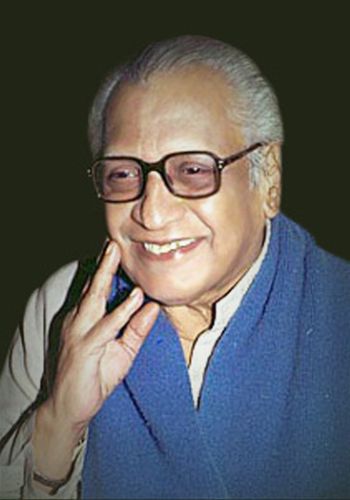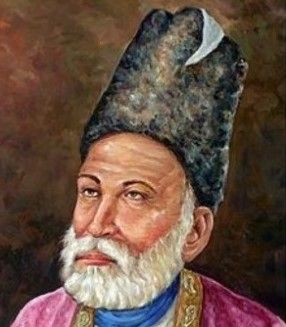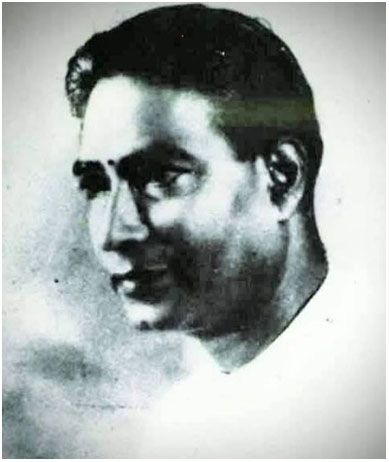Vishnu Vaman Shirwadkar

Subscribe to read full article
This section is for paid subscribers only. Our subscription is only $37/- for one full year.
You get unlimited access to all paid section and features on the website with this subscription.
Not ready for a full subscription?
You can access this article for $2 , and have it saved to your account for one year.
- Born: 27 February 1912 (Pune, Maharashtra)
- Died: 10 March 1999
- Primary Cinema: Marathi
Vishnu Vāman Shirwādkar, popularly known by his pen name, Kusumāgraj, also known as Vi. Vā. Shirwadkar was an eminent Marathi poet, playwright, novelist, and short-story writer, who wrote 16 volumes of poems, three novels, eight volumes of short stories, seven volumes of essays, 18 plays, and six one-act plays. Though he made a name for himself in the realm of poetry and theatre, Vishnu Vaman Shirwadkar, like most litterateurs of the early talkie era (Mama Warerkar, Narayan Hari Apte), was fascinated with the fast-emerging medium of the cinema and hence, it was but natural for him to want to be a part of it.
His first brush with cinema came in 1936 soon after his graduation in English and Marathi in 1934 from HPT College, Nasik. He was already an established poet who, while still in college, had his poems published in Ratnakar (1933), a reputed literary magazine of that era. By 1934 he had already published his first collection of poems, Jeevanlahiri. While still in college, he had also established his own group - Dhruv Mandal.
It was natural for him to gravitate towards cinema which was then making an impact on the theatre and literary world. The advent of sound (and thus dialogue) in 1931 had opened up possibilities for writers of caliber. The young Shirwadkar was drawn to a local cinema company, the Godavari Cinetone Limited founded a year earlier in 1935. Since Shirwadkar was already in the centre of the creative movement in Nasik, there is a distinct possibility that he may have been associated with Godavari Cinetone since its inception and may have only formally joined it in 1936.
In 1936, the newly-formed company launched its maiden effort Sati Sulochana, under the direction of Mama Shinde, a former assistant of Dadasaheb Phalke. The film was written by the young Nasik poet V W Shirwadkar who was also induced to play the role of Laxman. The film was released at the Circle Theatre in Nasik on Dasara but failed to catch the fancy of the audience. One of the reasons could be that the theme had been tried out in several films beginning with the silent era. It is said that Shirwadkar stuck it out till 1938 but the company could not start another film.
Eventually, a disheartened Shirwadkar turned to journalism and began writing in periodicals such as Saptahik Prabha, Dainik Prabhat, Saarathi, Dhanurdhari, Navayug, and others. By 1942 his collection of firebrand poems Vishakha had put him on the lips of every patriot who was fired with the zeal of the Quit India movement. By 1943 he had begun writing plays – adaptations of international playwrights at first and then his own. There was no time or inclination to turn to the cinema.
Twenty-three years after his first foray into films, Shirwadkar, by then a renowned playwright, was coerced by producer Vishwanath Kamat to write the script, dialogues, and lyrics of Jahnavi (1959), based on his own novel of the same name. The film was directed by Sona Pathare and Kamat himself and starred Rekha, Vivek, Chittaranjan Kolhatkar, and Leela Gandhi among others.
He passed away on 10th March 1999.







.jpg)



